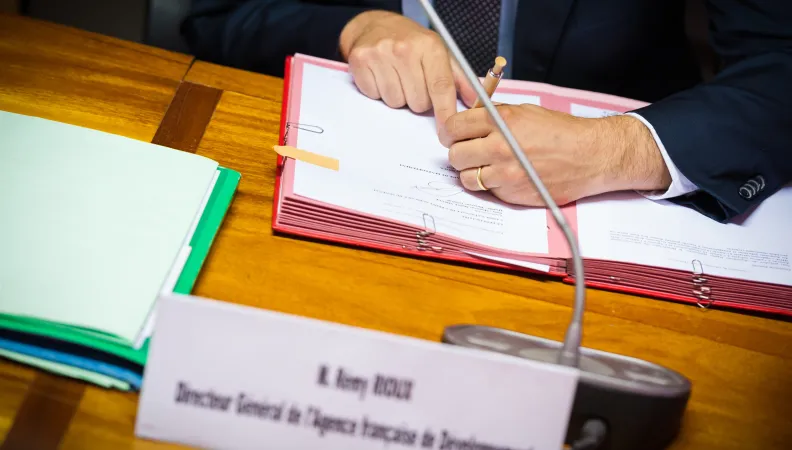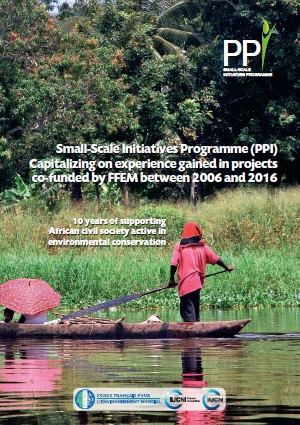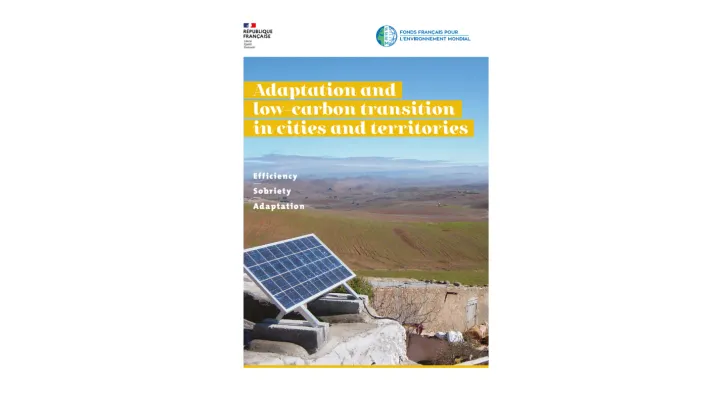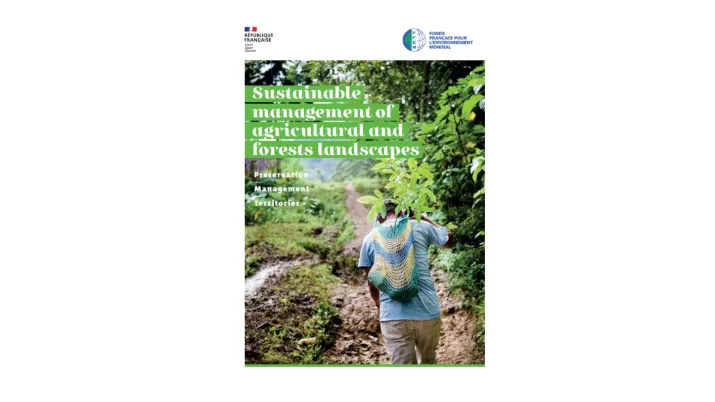Share the page
Submit a project

Any legal entity may submit a project provided that it falls within the FFEM's mandate and guidelines and meets the eligibility, funding and geographical criteria described below.
To assess your project idea, the FFEM reviews a Project Opportunity Note (NOP), which must meet various criteria. In order to submit an NOP, it is necessary to obtain formal support from one of the six member institutions of the FFEM steering committee. If one of them deems it appropriate, your proposal will then be submitted to the FFEM selection committee, and subsequently to its steering committee for project identification and commitment.
Eligibility criteria
All projects submitted to the FFEM must demonstrate that they meet the following 9 criteria:
- contribution to the preservation of the global environment;
- contribution to local sustainable development in one or more developing countries;
- innovative nature;
- demonstrative and replicable nature;
- economic and financial sustainability after the project;
- overall ecological and environmental viability;
- social and cultural acceptability, particularly through local ownership;
- adequate institutional framework;
- monitoring and evaluation system.
For each proposed project, particular attention will also be paid to:
- theory of change;
- partnership dimension;
- consideration of inequalities, women, youth, and vulnerable populations;
- knowledge sharing from the project;
- sustainability of funding and co-financing.
Applied research activities leading to, or linked with, development activities may be funded by the FFEM. However, fundamental research activities are not eligible for financial support from the FFEM.
The FFEM operates in any developing country eligible for official development assistance. Priority is given to the African continent, with a target of committing around two-thirds of FFEM resources there.
Project co-financing
The FFEM's grant contribution ranges from €500,000 to €2,000,000 per project.
The FFEM intervenes solely as a co-financier. A co-financing contribution is one that directly supports the project's specific objectives and is essential to its implementation. Project leadership and/or management involves close synergy among all co-financing partners, including the FFEM: the project owner or steering committee is the same for all co-financing sources.
The FFEM’s co-financing rate is:
- a maximum of 50% for NGOs, local public actors, research institutions, and social and solidarity economy enterprises (excluding mission-driven companies);
- a maximum of 30% for for-profit companies and international organisations.
At each stage of the review process, it must be stated whether the co-financing is requested, to be requested, or already secured. The project evaluation will include an analysis of the actual mobilisation of the expected co-financing.
The duration of activities co-financed by the FFEM may not exceed 5 years, except in duly justified and formalised cases. The FFEM does not aim to ensure the sustainability of a project beyond its initially planned duration. It is up to the project holder to identify, during project implementation, the financial resources required to ensure continuity beyond 5 years.
The FFEM’s Principles for supporting projects involving a component of “carbon finance”.
The comparative study of compensation standards carried out by the Ministry for the Ecological Transition (MTE) is based on an analysis of 5 fundamental criteria (Measurability, Verifiability, Permanence, Additionality, Uniqueness) and 3 additional criteria (Respect for human rights, Inclusion of environmental, social, and economic co-benefits, and alignment with the Sustainable Development Goals (SDGs) of the UN 2030 Agenda). The evaluation of projects by the FFEM that include a “carbon finance” component will follow this framework, with an emphasis on 5 key principles:
- multi-benefit projects rooted in a “territorial” or “value chain” approach;
- robust certification;
- transparent, participatory governance that supports scaling up;
- fair and transparent distribution of benefits;
- compensation as a last resort in the “Avoid-Reduce-Compensate” sequence.
Standard documents
The review of a project involves the secretariat and the scientific and technical committee, which both issue an opinion on the project, and the steering committee, which approves the identification and ultimately decides on FFEM funding.
Project Opportunity Note (PON)
Project identification note (PIN)
Project Commitment Note (PCN)
Note for "carbon finance" project sponsors
The project cycle
The nine key stages in the cycle of a project funded by the FFEM:
- Preparation of a Project Opportunity Note, presenting the key features of the project idea: project context, objectives, partners, and costs. This note is submitted by one of the six member institutions of the FFEM Steering Committee;
- Selection of 12 presentation notes and reports carried out by the Secretariat in consultation with the six member institutions of the FFEM. These notes and reports will be reviewed during the three annual meetings of the Steering Committee.
- Preparation of a Project Identification Note by one of the institutional partners together with the potential beneficiary
- Eligibility check of the project by the Secretariat
- Opinion from the Scientific and Technical Committee and the Secretariat
- Review of the Note by the Steering Committee
- Editorial support and standardisation of the Notes by the Secretariat
- Possible authorisation by the Steering Committee to process the project, allocate it a funding amount and, if necessary, finance its feasibility study
- Conduct of the ex-ante feasibility study of the project, detailing the technical, economic, and institutional conditions for its implementation, as well as the application points for funding based on its feasibility and logical framework;
- Preparation of a Project Commitment Note for the Steering Committee;
- Editorial support and standardisation of the Project Commitment Note by the Secretariat.
- Review of the Project Commitment Note by the Steering Committee;
- Approval of the project by the Steering Committee, with opinions given during the session by the Scientific and Technical Committee and the Secretariat;
- Authorisation of the Secretariat to commit the corresponding funds;
- Preparation of the funding agreement between the Secretariat and the beneficiary;
- Signature of the funding agreement between AFD, manager of the FFEM, and the beneficiary.
- Implementation of the project by the grant beneficiary;
- Monitoring and supervision by the institutional partner with the support of the Secretariat;
- Preparation of regular technical and financial progress reports by the beneficiary;
- If applicable, mid-term evaluation
- Preparation of a completion report by the grant beneficiary
- Production of indicators and results on the project
- Post-project impact study
- Retrospective evaluations
- Dissemination conferences and seminars
- Communication on project implementation or evaluation report by the institutional partner, with support from the Secretariat and/or the beneficiary
- Communication: publications, films, infographics, etc.
- These materials may relate to a single project or to multiple projects within the same field of intervention or geographical area.
Focus on our publications









